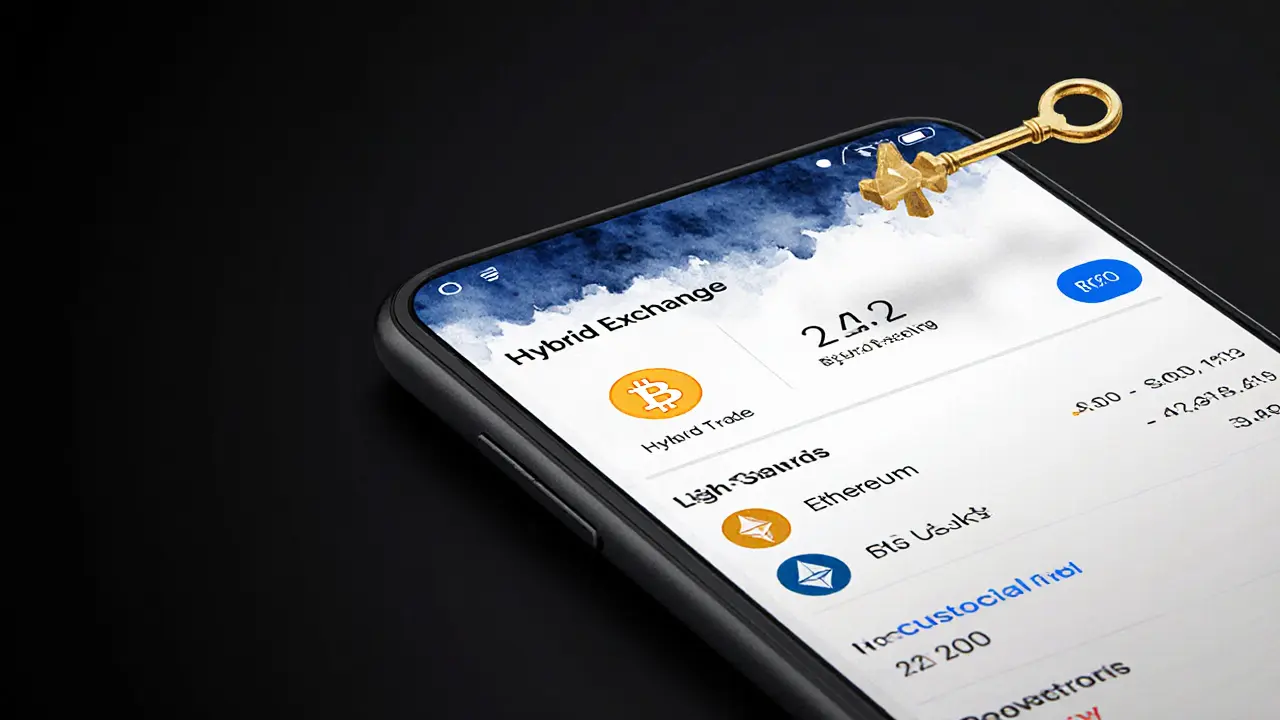Eidoo Wallet: What It Is, How It Works, and Why It Matters
When you think about managing your crypto, you need more than just a place to store coins — you need control. That’s where the Eidoo wallet, a non-custodial digital wallet designed for Ethereum and DeFi users. Also known as Eidoo App, it let users hold their keys, swap tokens, and access decentralized apps without handing control to a third party. Unlike exchanges that keep your crypto on their servers, Eidoo put the power in your hands. If you lost your password? That was it. No recovery. No help desk. That’s the trade-off for true ownership.
It wasn’t just a wallet — it was a mini DeFi hub. You could trade tokens directly inside Eidoo using integrated DEXs like Uniswap, stake ETH, and even buy crypto with a credit card. It supported over 1,000 tokens, including ERC-20s and ERC-721 NFTs, and worked on both iOS and Android. For many, especially in 2019 and 2020, it was one of the few wallets that felt simple enough for beginners but powerful enough for active users. It connected to hardware wallets like Ledger too, adding a layer of security for those who wanted it. But behind the scenes, things got messy. The team slowed down. Updates stopped. Community chatter faded. And by 2023, the app was effectively abandoned — no new features, no security patches, no support.
Why does this matter now? Because Eidoo wallet was a prototype of what a user-friendly crypto wallet should be. It showed that people didn’t want to juggle five apps to swap, stake, and store. It proved that non-custodial wallets could be intuitive — if you had the resources to build them right. But it also exposed the risks of relying on small teams with unclear funding. Many users still have old Eidoo wallets sitting around with small balances inside. Some still try to log in, hoping it’ll work again. It won’t. But the lessons from Eidoo live on in wallets like MetaMask, Trust Wallet, and Rabby — all of which took what Eidoo tried to do and ran with it, with better funding and clearer roadmaps.
If you’re looking at crypto wallets today, you’re seeing the direct result of Eidoo’s experiment. The idea of one app for everything — storage, swaps, staking — is now standard. But Eidoo didn’t survive the race. What you’ll find in the posts below are real stories from users who held Eidoo, scams that mimicked it, and comparisons with wallets that actually still work. No fluff. No hype. Just what happened, what went wrong, and what you should do instead.

Eidoo Hybrid Exchange Crypto Exchange Review: Security, Features, and Real-World Use
Eidoo Hybrid Exchange offers a unique blend of secure, non-custodial wallet features with fast, centralized-style trading. Perfect for users who want control over their crypto without sacrificing ease of use.
